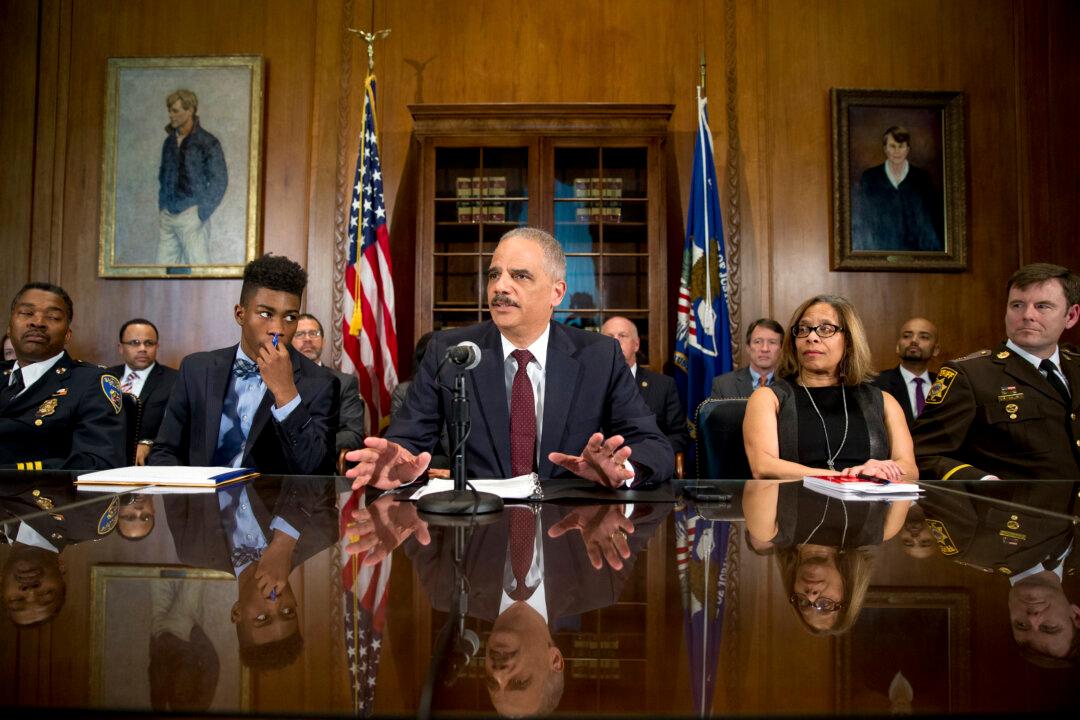Unlikely allies joined together for a common cause Thursday: from the staunch conservative and former U.S. House Speaker Newt Gingrich, to the Democrat U.S. Sen. Cory Booker. Advocates, politicians, and organizations from both sides of the political spectrum convened in Washington, D.C. to put heads together on how to reform our criminal justice system.
The bipartisan summit was organized by the group #cut50, whose goal is to reduce the country’s 2.2 million incarcerated population in half within the next 10 years, and Gingrich.
Topics of discussion ranged from how to improve police-community relations, to programs that keep children out of jail and prison.
U.S. Attorney General Eric Holder, who is due to leave office in the coming weeks, made special remarks at the day-long conference. The country’s top law enforcement official spoke of many failed policies that he felt made the system less fair and equal for Americans—from zero tolerance school policies that bring students to the police station for breaking rules, to the disparity in prison sentencing for people who are found with crack cocaine versus powder cocaine.





